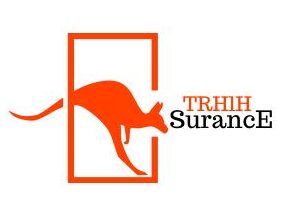Personal Finance Tips for Managing Your Money Wisely
Personal finance refers to the management of your money, including budgeting, saving, investing, and debt management.
It is a vital aspect of your overall financial well-being and can help you achieve your financial goals. Understanding personal finance can be overwhelming,
but with the right knowledge and tools, you can take control of your finances and build a secure financial future.

One of the most important aspects of personal finance is budgeting and expense management.
By creating a budget, you can track your income and expenses and identify areas where you can cut back on spending. This can help you save money and avoid debt.
Additionally, having an emergency fund can provide a safety net in case of unexpected expenses or job loss.
Investing and wealth building are also key components of personal finance. By investing your money wisely, you can grow your wealth and achieve your financial goals.
However, it is important to understand the risks involved and seek professional advice before making any investment decisions.
Key Takeaways
- Personal finance involves managing your money, including budgeting, saving, investing, and debt management.
- Budgeting and expense management are crucial for achieving financial stability and avoiding debt.
- Investing and wealth building can help you achieve your financial goals, but it is important to understand the risks involved and seek professional advice.
Personal Finance

Personal finance refers to the management of your money and financial decisions to achieve your financial goals.
It is a critical aspect of your life that involves managing your income, expenses, savings, and investments.
In this section, we will discuss the fundamentals of personal finance, financial planning and goals, income, and expenses.
Fundamentals of Personal Finance
To understand personal finance, you need to have a basic understanding of financial literacy. Financial literacy refers to the knowledge and skills required to make informed financial decisions.
It includes understanding financial concepts such as budgeting, saving, investing, and managing debt.
Financial Planning and Goals
Financial planning involves setting financial goals, developing a plan to achieve those goals, and tracking your progress.
Your financial goals may include saving for retirement, buying a house, or paying off debt.
To achieve your financial goals, you need to develop a plan that considers your income, expenses, and other financial obligations.
Income and Expenses
Your income is the money you earn from your job, investments, or other sources. Your expenses are the money you spend on bills, groceries, housing, and other necessities.
To manage your personal finance, you need to understand your income and expenses.
You should create a budget to track your expenses and ensure that you are not spending more than you earn.
In summary, personal finance is about managing your money to achieve your financial goals.
It involves understanding financial concepts, setting financial goals, developing a plan to achieve those goals, and managing your income and expenses.
By developing good financial habits, you can achieve financial stability and security.
Budgeting and Expense Management
Managing your personal finances can be challenging, but creating a budget and tracking your expenses can help you stay on top of your finances.
In this section, we will cover the basics of budgeting and expense management, including creating a budget, tracking your spending, and reducing expenses.
Creating a Budget
Creating a budget is the first step in taking control of your finances. Start by calculating your monthly income and expenses.
You can use a simple spreadsheet or budgeting app to help you track your income and expenses. NerdWallet recommends the 50/30/20 rule as a simple budgeting framework.
This rule suggests that you allocate 50% of your income for needs, 30% for wants, and 20% for savings and debt repayment. Adjust the percentages based on your personal financial situation.
Tracking Spending
Tracking your spending is an essential part of managing your finances.
By tracking your expenses, you can identify areas where you may be overspending and make adjustments to your budget.
There are several budgeting apps available that can help you track your expenses, such as Every Dollar, which helps you deploy a zero-based budget plan by helping you account for each dollar spent.
Reducing Expenses
Reducing expenses is an effective way to improve your financial situation.
Start by reviewing your monthly expenses and identifying areas where you can cut back. For example, you can reduce your household expenses by shopping around for better deals on utilities, phone, and internet services.
You can also reduce your food expenses by meal planning and cooking at home.
In summary, budgeting and expense management are essential for managing your personal finances.
By creating a budget, tracking your spending, and reducing expenses, you can take control of your finances and achieve your financial goals.
Saving and Emergency Funds
Saving money is an essential part of personal finance. It helps you achieve your financial goals, build wealth, and create a safety net for unexpected expenses. In this section, we’ll discuss the importance of saving money, building an emergency fund, and the different savings accounts and options available to you.
Importance of Saving Money
Saving money is crucial because it allows you to achieve your financial goals.
Whether you want to buy a house, start a business, or retire early, saving money is the first step towards achieving those goals. It also helps you build wealth over time, which can provide financial security for you and your family.
Moreover, saving money creates a safety net for unexpected expenses.
Emergencies can happen at any time, and having money set aside can help you avoid going into debt or missing bill payments.
It’s essential to have a safety net in place to protect yourself from financial hardship.
Building an Emergency Fund
One of the most important reasons to save money is to build an emergency fund. An emergency fund is a savings account that you set aside for unexpected expenses, such as medical bills, car repairs, or job loss.
The general rule of thumb is to have three to six months’ worth of living expenses saved in your emergency fund.
To build an emergency fund, start by setting a savings goal. Determine how much you need to save and how long it will take you to reach that goal.
Then, create a budget and start saving money each month. You can also consider automating your savings by setting up a direct deposit from your paycheck into your emergency fund.
Savings Accounts and Options
There are several savings accounts and options available to help you save money. Some of the most common options include:
- High-yield savings accounts: These accounts offer higher interest rates than traditional savings accounts, allowing you to earn more on your savings.
- Certificates of deposit (CDs): CDs are savings accounts that offer a fixed interest rate for a set period, usually ranging from three months to five years.
- Money market accounts: These accounts are similar to savings accounts but offer higher interest rates and may require a higher minimum balance.
It’s essential to research your options and choose the account that best fits your needs and goals. Consider factors like interest rates, fees, and accessibility when choosing a savings account.
In summary, saving money and building an emergency fund are essential components of personal finance.
They help you achieve your financial goals, build wealth, and create a safety net for unexpected expenses.
By understanding the importance of saving money and the different savings accounts and options available, you can take control of your finances and achieve financial security.
Investing and Wealth Building
If you want to build wealth, investing is a crucial part of the process. By investing your money wisely, you can grow your net worth and achieve your financial goals.
In this section, we’ll cover the basics of investing and wealth building.
Introduction to Investing
Investing is the process of putting your money to work in order to earn a return.
There are many different types of investments, including stocks, bonds, mutual funds, and real estate. Each type of investment has its own risks and rewards, and it’s important to understand these before you invest.
Before you start investing, it’s important to have a solid financial plan in place.
This plan should include your short-term and long-term financial goals, as well as your risk tolerance. It’s also important to have an emergency fund in place to cover unexpected expenses.
Stocks, Bonds, and Mutual Funds
When it comes to investing, stocks, bonds, and mutual funds are some of the most common types of investments.
Stocks represent ownership in a company, while bonds represent a loan to a company or government.
Mutual funds are a collection of stocks and/or bonds that are managed by a professional fund manager.
Each of these investments has its own risks and rewards. Stocks, for example, tend to be more volatile than bonds, but they also have the potential for higher returns. Bonds, on the other hand, tend to be less risky than stocks, but they also offer lower returns.
Mutual funds can offer a good balance of risk and reward, but they also come with management fees.
Retirement Accounts and Pensions

Retirement accounts and pensions are another important part of investing and wealth building. These accounts are designed to help you save for retirement and can offer tax benefits as well.
Some common types of retirement accounts include 401(k)s, IRAs, and Roth IRAs.
These accounts allow you to save for retirement on a tax-deferred or tax-free basis, depending on the type of account you choose.
Pensions, on the other hand, are a type of retirement account that is offered by some employers.
These accounts provide a guaranteed income stream in retirement, but they are becoming less common in today’s workforce.
In conclusion, investing and wealth building are important components of personal finance.
By understanding the basics of investing and choosing the right investments for your goals and risk tolerance, you can grow your net worth and achieve your financial dreams.
Debt and Credit Management
Managing your debt and credit is an essential aspect of personal finance.
It’s important to understand the different types of debt and credit, how they work, and how you can manage them effectively.
Understanding Debt
Debt is money that you owe to someone else. It can come in many forms, such as credit card debt, personal loans, student loans, and mortgages.
When you borrow money, you are expected to pay it back with interest over time.
It’s crucial to understand the terms of your debt, such as the interest rate, payment schedule, and any fees associated with the loan. Make sure you read the fine print before signing any loan agreements.
Credit Cards and Interest Rates
Credit cards are a popular form of debt that allows you to borrow money to make purchases.
However, credit cards come with high-interest rates, which can quickly add up if you don’t pay off your balance in full each month.
It’s essential to understand how credit card interest rates work and how they can affect your overall debt.
For example, if you have a high-interest rate on your credit card, it may be worth considering a balance transfer to a card with a lower interest rate.
Debt Reduction Strategies
If you’re struggling with debt, there are several strategies you can use to help reduce your overall debt load.
One common strategy is the debt snowball method, where you focus on paying off your smallest debts first and then work your way up to larger debts.
Another strategy is debt consolidation, where you combine all your debts into one loan with a lower interest rate.
This can make it easier to manage your debt and reduce your overall interest payments.
Finally, if you’re struggling to make your debt payments, there are several debt relief options available, such as debt settlement or bankruptcy.
However, these options should only be considered as a last resort and can have long-term consequences on your credit score.
In summary, managing your debt and credit is an essential aspect of personal finance.
Make sure you understand the terms of your debt, how credit cards work, and consider different debt reduction strategies if you’re struggling to make your payments.
Insurance and Protection
When it comes to personal finance, insurance and protection are essential components to consider.
Insurance policies are designed to protect you, your loved ones, and your assets from unexpected events such as accidents, illnesses, and natural disasters.
In this section, we will explore the different types of insurance and protection available to you.
Types of Insurance
There are many types of insurance policies available to help protect you financially. Some of the most common types of insurance include:
- Health Insurance
- Life Insurance
- Disability Insurance
- Homeowners or Renters Insurance
- Auto Insurance
- Umbrella Insurance
Each type of insurance policy offers different levels of coverage, so it’s important to carefully consider your needs and budget when selecting a policy.
Health Insurance and HSAs
Health insurance is an important type of insurance that provides coverage for medical expenses.
It can help protect you from the high costs of healthcare, including doctor visits, hospital stays, and prescription medications.
Additionally, many health insurance plans offer preventative care services such as annual physicals and vaccinations.
One type of health insurance plan that is gaining popularity is a Health Savings Account (HSA).
An HSA is a tax-advantaged savings account that can be used to pay for qualified medical expenses.
It’s a great way to save money on healthcare costs while also reducing your taxable income.
Liability and Asset Protection
Liability insurance is another important type of insurance that can help protect you financially. It provides coverage for damages or injuries that you may be held liable for.
For example, if you accidentally injure someone or damage their property, liability insurance can help cover the costs.
Asset protection is also an important consideration when it comes to personal finance.
It involves taking steps to protect your assets from creditors, lawsuits, and other potential risks.
Some common asset protection strategies include setting up a trust, incorporating your business, and purchasing umbrella insurance.
In conclusion, insurance and protection are essential components of personal finance.
By carefully selecting the right types of insurance policies and asset protection strategies, you can help safeguard your financial well-being and protect yourself and your loved ones from unexpected events.

Real Estate and Homeownership
Owning a home is a big financial decision that requires careful consideration. There are several factors to consider before deciding whether to buy or rent a home.
In this section, we will explore the pros and cons of homeownership and provide some tips on how to navigate the home buying process.
Buying vs. Renting
When it comes to deciding whether to buy or rent a home, there are several factors to consider.
One of the most important factors is your financial situation. Buying a home requires a significant amount of money upfront, including a down payment, closing costs, and other expenses.
On the other hand, renting a home typically requires a smaller upfront investment, but you will not build equity in the property.
Another factor to consider is your lifestyle. If you value stability and the ability to make changes to your home, owning a home may be the better option.
However, if you prefer flexibility and the ability to move frequently, renting may be a better fit.
Mortgages and Home Loans
If you decide to buy a home, you will likely need to take out a mortgage. A mortgage is a loan that is used to purchase a home.
There are several types of mortgages available, including fixed-rate mortgages and adjustable-rate mortgages.
When applying for a mortgage, your credit score will be an important factor in determining your eligibility and interest rate.
It is important to maintain a good credit score by paying your bills on time and keeping your credit utilization low.
Homeownership Expenses
Owning a home comes with several expenses that you may not have considered. In addition to your mortgage payment, you will need to pay property taxes, homeowners insurance, and maintenance costs.
It is important to budget for these expenses when deciding how much home you can afford.
One of the biggest expenses of homeownership is the down payment. The down payment is a percentage of the home’s purchase price that you must pay upfront.
The size of the down payment will depend on the type of mortgage you have and your lender’s requirements.
In conclusion, homeownership can be a great investment, but it is important to carefully consider all of the factors before making a decision.
By understanding the costs and benefits of homeownership, you can make an informed decision that is right for you and your financial situation.
Taxes and Legal Considerations
When it comes to personal finance, taxes and legal considerations are a crucial aspect that you cannot afford to overlook. Understanding taxes, estate planning, and tax-advantaged accounts can help you make informed decisions and minimize your tax liabilities.
Understanding Taxes
Taxes are an essential part of personal finance, and it’s vital to understand the tax system and how it affects your finances.
You need to know the different types of taxes, such as income tax, property tax, sales tax, and more.
Understanding the tax code can help you identify deductions and credits that you may be eligible for, which can help you reduce your tax bill.
Estate Planning and Wills
Estate planning involves creating a plan for how your assets will be distributed after your death.
It’s crucial to have a will that outlines your wishes and ensures that your assets are distributed according to your wishes.
Estate planning also involves creating trusts, which can help you minimize taxes and protect your assets.
Tax-Advantaged Accounts
Tax-advantaged accounts are a great way to save for retirement while minimizing your taxes. These accounts include 401(k)s, IRAs, and Health Savings Accounts (HSAs).
Contributions to these accounts are tax-deductible, and the earnings grow tax-free until you withdraw the funds.
It’s essential to understand the contribution limits and withdrawal rules for these accounts to maximize their benefits.
In addition to these considerations, you should also be aware of the tax implications of Plan C and ABLE accounts.
Plan C is a retirement plan for self-employed individuals, while ABLE accounts are savings accounts for individuals with disabilities.
Understanding the tax benefits and limitations of these accounts can help you make informed decisions and maximize your savings.
In conclusion, taxes and legal considerations are an essential aspect of personal finance that you cannot afford to overlook.
By understanding taxes, estate planning, and tax-advantaged accounts, you can make informed decisions and minimize your tax liabilities.
Credit Card Debt Relief
If you’re struggling with credit card debt, there are several options available to help you get back on track. Here are some of the most common ways to get credit card debt relief:
1. Debt Consolidation Loans
Debt consolidation loans are a popular option for those looking to simplify their debt payments. These loans allow you to combine multiple credit card balances into one loan with a fixed interest rate and monthly payment. This can make it easier to manage your debt and potentially lower your interest rate.
2. Balance Transfer Credit Cards
Another option for credit card debt relief is a balance transfer credit card.
These cards allow you to transfer your existing credit card balances to a new card with a lower interest rate.
Many balance transfer cards offer a 0% introductory interest rate for a certain period of time, which can help you save money on interest charges.
3. Debt Management Plans
If you’re struggling to keep up with your credit card payments, a debt management plan (DMP) may be a good option.
DMPs are offered by credit counseling agencies and involve working with a counselor to create a repayment plan for your debts.
The counselor may also negotiate with your creditors to lower your interest rates or waive fees.
4. Bankruptcy
While it should be considered a last resort, bankruptcy can provide relief from overwhelming credit card debt.
bankruptcy can eliminate most unsecured debts, including credit card balances,
bankruptcy involves creating a repayment plan to pay back your debts over a period of three to five years.
Keep in mind that bankruptcy can have a significant impact on your credit score and should only be considered after exploring other options.
Remember, the best way to get credit card debt relief is to take action as soon as possible. Ignoring your debt will only make the situation worse.
Consider your options and take steps to get back on track financially.

Mortgage Refinancing
If you’re looking to save money on your monthly mortgage payments or pay off your mortgage sooner, then mortgage refinancing may be a good option for you.
Refinancing your mortgage involves replacing your current mortgage with a new one at a lower interest rate or with more favorable terms.
Before you decide to refinance your mortgage, it’s important to consider the costs involved. Refinancing can come with fees such as application fees, appraisal fees, and closing costs.
These fees can add up quickly, so it’s important to make sure that the savings you’ll get from refinancing outweigh the costs.
One benefit of refinancing your mortgage is that it can lower your monthly mortgage payments.
This can be especially helpful if you’re struggling to make ends meet or if you want to free up some cash for other expenses.
By refinancing to a lower interest rate, you can reduce the amount of interest you pay over the life of your loan, which can save you thousands of dollars in the long run.
Another benefit of refinancing your mortgage is that it can help you pay off your mortgage sooner.
By refinancing to a shorter loan term, such as a 15-year mortgage instead of a 30-year mortgage, you can pay off your mortgage faster and save money on interest.
However, it’s important to make sure that you can afford the higher monthly payments that come with a shorter loan term.
Overall, mortgage refinancing can be a great way to save money on your mortgage payments and pay off your mortgage sooner.
However, it’s important to carefully consider the costs involved and make sure that refinancing is the right choice for you.
Student Loan Consolidation
If you have multiple federal student loans, consolidating them into a single loan can simplify your monthly payments and potentially lower your interest rate.
To consolidate your loans, you’ll need to apply for a Direct Consolidation Loan through the government.
When consolidating your loans, keep in mind that you may lose certain benefits associated with your original loans, such as interest rate discounts or loan forgiveness programs.
However, consolidation can still be a useful tool for managing your debt.
Here are some key things to know about student loan consolidation:
Eligibility: Most federal student loans are eligible for consolidation, including Direct Subsidized Loans, Direct Unsubsidized Loans, and PLUS Loans.
Private student loans cannot be consolidated through the government program.
Interest rate: The interest rate on a Direct Consolidation Loan is based on the weighted average of the interest rates on your current loans, rounded up to the nearest one-eighth of a percentage point.
This means that your interest rate may be slightly higher or lower than your current rates.
Repayment options: When you consolidate your loans, you’ll have the option to choose a new repayment plan.
This could include an income-driven plan, which adjusts your monthly payment based on your income and family size, or a standard plan with fixed payments over a set period of time.
Timing: Consolidating your loans can take several weeks to several months, depending on the complexity of your situation.
During this time, you’ll need to continue making payments on your current loans until your consolidation is complete.
Overall, student loan consolidation can be a helpful tool for simplifying your monthly payments and potentially lowering your interest rate.
However, it’s important to carefully consider the pros and cons before making a decision.
Debt Settlement Tax Relief
If you owe back taxes to the IRS, you may be eligible for debt settlement tax relief.
This type of relief can help you reduce your tax debt and make it more manageable.
Here are some options you may want to consider:
Offer in Compromise
An Offer in Compromise (OIC) is an agreement between you and the IRS that allows you to settle your tax debt for less than the full amount you owe.
To qualify for an OIC, you must meet certain eligibility requirements and submit an application along with a fee.
If your offer is accepted, you will be required to make payments on the agreed-upon amount.
Installment Agreement
If you cannot pay your tax debt in full, you may be able to set up an installment agreement with the IRS.
This will allow you to make monthly payments on your tax debt over a period of time.
There are different types of installment agreements available, depending on your circumstances.
Currently Not Collectible
If you are experiencing financial hardship and cannot afford to pay your tax debt, you may be able to request that the IRS classify your account as Currently Not Collectible (CNC).
This means that the IRS will temporarily stop collection activities until your financial situation improves.
Innocent Spouse Relief
If you filed a joint tax return with your spouse and they made errors or committed fraud, you may be eligible for Innocent Spouse Relief.
This type of relief can help you avoid being held responsible for your spouse’s tax debt.
It is important to note that debt settlement tax relief is not a magic solution to your tax problems.
You should carefully consider your options and seek professional advice before making any decisions.





